Learning Korean Can Be Laugh Out Loud Funny: Funny Korean Words & Phrases
Last Updated on October 20, 2023
Learning a new language is a difficult task for anyone but learning can be super fun and hilarious. Some of my favorite words or phrases in Korean are the ones that are just so literal in my own language that they are hilarious to me every time I say them.
Whether you’re just beginning to learn Korean or you’ve been learning Korean for awhile, I’m sure you’ll appreciate these phrases and Korean words. Here have been some of my favorites that I still try to splice into conversation even if it’s just to make myself chuckle a little. I should admit that what I find funny, may not be your sort of humor. I like pretty straightforward humor, slapstick and duh stuff so, read with that awareness. If you’re looking for actual Korean jokes, check out this list of Korean dad jokes, or Konglish jokes.

The Korean words you’ll find in this post:
- 손목 (Son-mok)
- 닭살 (Dak-sal)
- 입이 심심해 (Eeb-ee shim-shim-hae)
- 마음을 먹다 (Ma-eum-eul meok-da)
- 나이를 먹다 (Na-i-reul meok-da)
- 엉덩이가 바지를 먹었어 (Ungdungee-ga paji-leul mugussuh)
- 별똥별 (Byul-ddong-byul)
- 불꽃 (Bool-gote)
- 닭똥집 (Dalk-ddong-jib)
- 붕어빵이다 (Bung-eo-bbang-i-da)
- 귀가 얇다 (Kwi-ga yalb-da)
- 손이 크다 (son-i keu-da)
(This post contains affiliate links, which means I receive a certain percentage of a sale at no cost to you.)
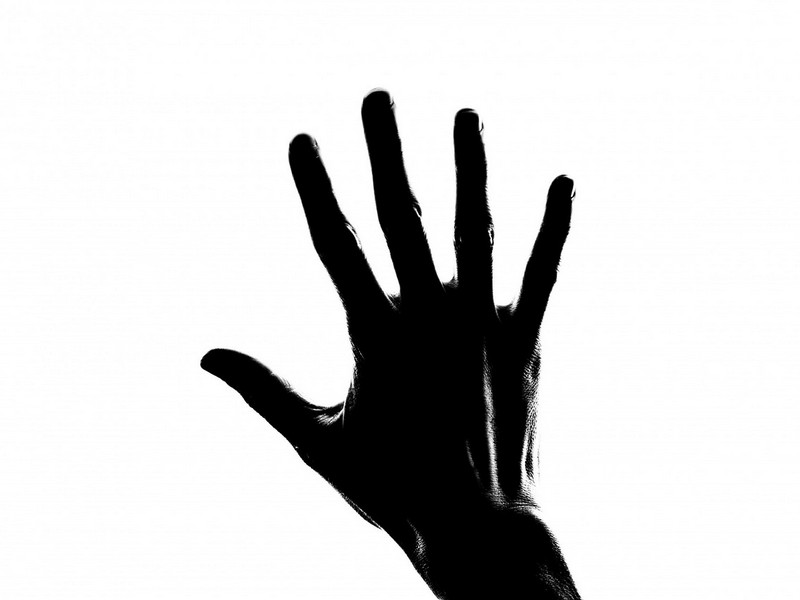
1. 손목 (Son-mok)
Literally translated as “hand neck”. Can you guess what it is? Picture your hand… and the neck would be… yep, it’s your wrist! I learned this my first year in Korea while sitting in a classroom with a group of kindergartners. They were a bright lot and we were learning body parts.
When I pointed to my wrist to illicit the correct answer from the group, a student yelled out, “hand neck!” I couldn’t help but giggle and I was so taken aback with what a genius this student was to have taken the idea of the neck under the head and put it with the hand that it wasn’t until I told the story to a Korean co-teacher later and she told me that was literally the Korean for the wrist that I realized why that was the response I’d gotten. I still think that student was brilliant.
But seriously, why don’t we call the wrist the hand-neck? Additionally, your ankle would be your foot-neck or bal-mok (발목) in Korean.
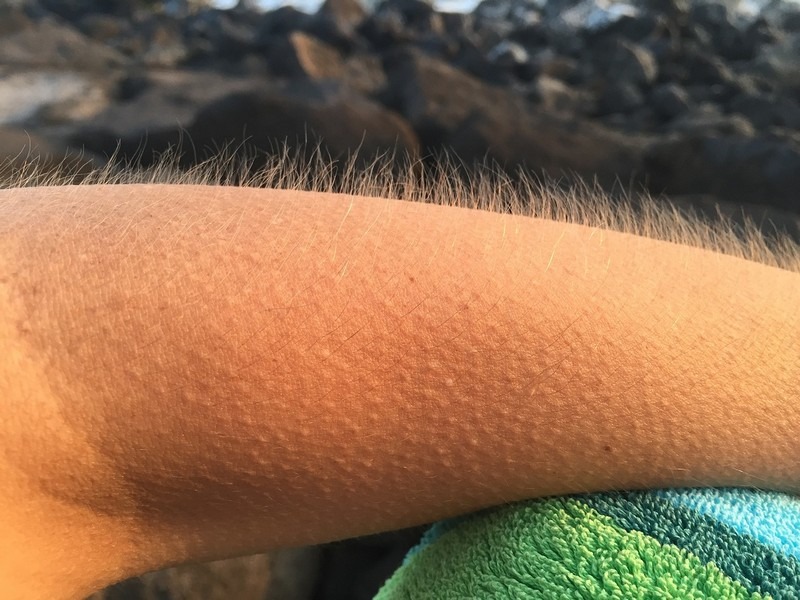
2. 닭살 (Dak-sal)
I liked this one because it’s not far off of what we say, but is actually a bit more accessible. Dak-sal literally means chicken skin and refers to what we would call goosebumps. The first time I heard this I realized how I actually know what chicken skin looks like and really have no idea what goose skin looks like. Yes, chicken skin it is now.
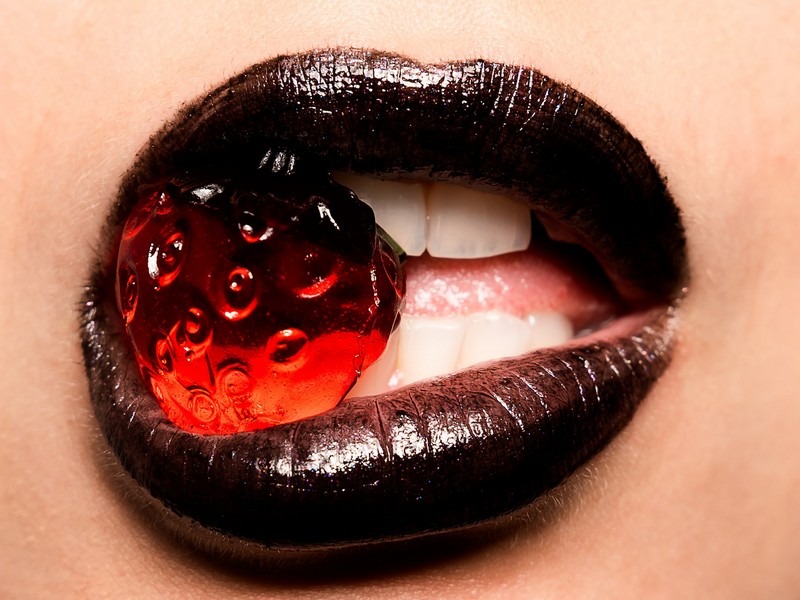
3. 입이 심심해 (Eeb-ee shim-shim-hae)
Recently my husband was telling me that he wasn’t hungry and he wasn’t full, he was somewhere in between. He let this one slip and I thought it was right on the money. After living with a British woman for a couple of years, I said he must be peckish, as she would say and no American I know would ever say.
What he said in Korean though was that his mouth was bored. Yes! That is indeed the feeling sometimes and I totally understood. When your mouth gets bored, what do you munch on? Along with this, you can also say 손이 심심해 (son-ee shim-shim-hae) meaning your hands are bored and you want to do something like a craft.

4. 마음을 먹다 (Ma-eum-eul meok-da)
I just made up my mind! I will not speak Korean wherever I go. Okay, so it’s probably not going to happen, but if I were to say, “I made up my mind” in Korean, I’d say this instead. 마음을 먹다 literally means, “I ate my mind”.

5. 나이를 먹다 (Na-i-reul meok-da)
먹다 (meok-da) or “to eat” is a pretty versatile verb in Korean and is used very often. Actually, did you know that Koreans don’t ask how you are when they greet you, but they ask if you’ve eaten? It’s used a lot suffice to say and in this case it’s even used to talk about someone who is growing older.
Age is a pretty common conversation topic in Korean. It’s one of the first questions you’ll be asked when you’re becoming friends with someone in Korea so they know how to actually talk with you. In this case, the phrase literally means to “eat your age”.
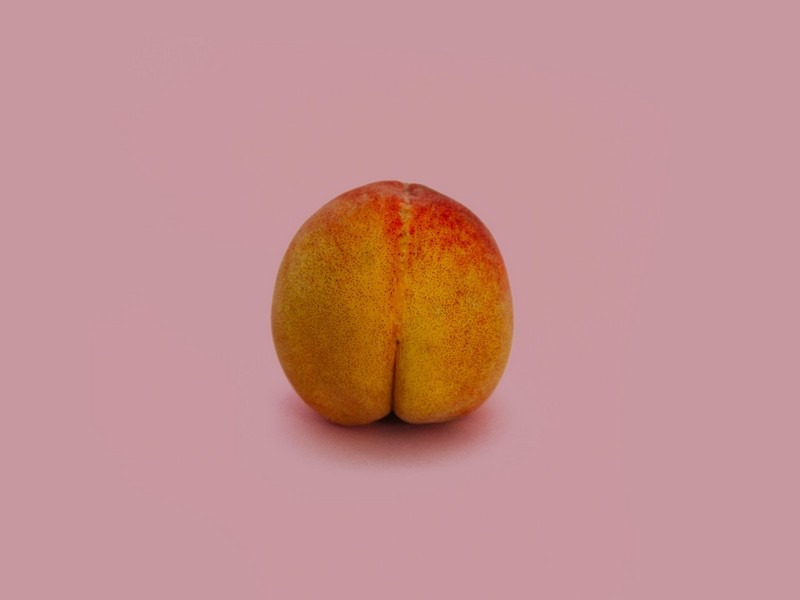
6. 엉덩이가 바지를 먹었어 (Ungdungee-ga paji-leul mugussuh)
Who doesn’t find themselves walking down the road and suddenly you’ve got a wedgie and you can’t do a think about it because there are too many people around at least once in their life? Being in a multilingual relationship means that at times words don’t translate and I have to explain something a bit further than I’d want or am comfortable doing.
I got a wedgie, my husband asked why I was walking funny and I told him, though he didn’t understand the word. When I explained what it was, he told me what it was in Korean and it was an entire sentence for our one very simple word. What they say in Korean though is absolutely hilarious and so perfect. Wedgie translated into Korean literally means “my butt ate my pants”.
I laughed out loud when I heard this and I continue to insert it into conversations randomly because I still find it so funny. Her butt is eating her pants!!
While some words or phrases in Korean may be extremely hilarious due to how literally they explain something when translated in my own language, some are amusing due to the way they express something.
Have you learned any Korean that made you chuckle when you translated it literally? What are some of your favorite words or phrases? If you’re just starting your journey into learning Korean, or want to jump into a course online to assist your in-class lessons, check out 90 Day Korean for some awesome FREE resources as well as courses and instruction by educated professionals. They really know what they’re doing and it’s super easy to sign up and get started.

7. 별똥별 (Byul-ddong-byul)
Koreans generally seem to have an obsession with poop. It’s discussed here much more than I ever heard it discussed back in the States and I’m pretty sure my mom would never be able to live here because of that. There are poop icons drawn on windows and stickers with poop swirls given to students for a job well done, even poop-themed cafes. What the fascination is, I can’t say, but it exists.
The fascination even comes up when you least expect it. This word is shooting star which conjures up ideas of romantic starry night skies and perhaps a wish made at the sight of one. In Korean though, shooting star is literally ‘a star that poops a star’. It doesn’t sound so romantic or make you want to wish on one now does it?

8. 불꽃 (Bool-gote)
My second or third year in Korea, I was hanging out on Mapo Bridge waiting for the Seoul Fireworks Festival to get underway and I was staring at the banner hung nearby for the event. Often, my eyes will zone in on the English first because obviously, that’s the easiest for me to understand right off the bat so, I neglect the Korean that is there to read.
While I stared at it, I noticed what the Korean was for ‘firework’ and since then, I tend to use the Korean literal version over the English when I’m speaking English because it’s so much more beautiful. Firework literally translated into Korean is ‘fire flower’. Isn’t that much more romantic than the idea of a star pooping a star?
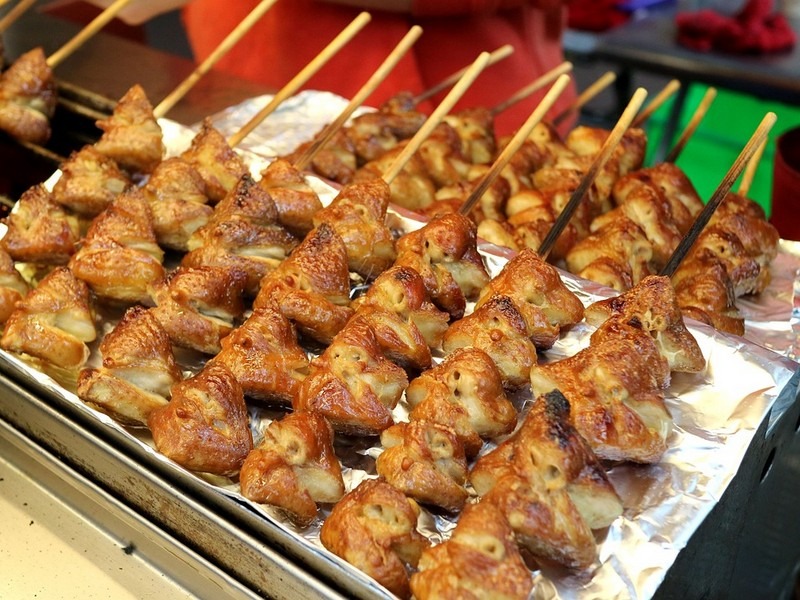
9. 닭똥집 (Dalk-ddong-jib)
Over the years my palate has adapted to Korean delicacies. Food that at first put me off, I now enjoy. It’s an ever changing thing though and foods that I didn’t like just last year like fermented sesame leaves, I now like. Because of that, my husband is always trying to introduce me dishes that I may not have tried or I tried before and I didn’t have a taste for yet.
We have both learned that it is usually better if he doesn’t tell me exactly what I’m eating before I eat too because many dishes in Korean are just so literally translated as to sound very unappealing. This is one of those dishes. Koreans inspire shock when they tell you you’re about to delve into a ‘chicken’s poop house’ which is this term literally and it sounds completely unappetizing as soon as they do, but it’s actually the gizzard and really isn’t so bad.

10. 붕어빵이다 (Bung-eo-bbang-i-da)
I remember the first time my sister came to visit and my Korean friends were telling me we looked alike. We’ve gotten that our whole lives so it wasn’t anything new to hear… but it sure was new to hear how Koreans will tell you you look alike. They’re literally saying you look like the fish-shaped pastry you often find on street carts.
How to use it in a sentence?
아들이 아빠랑 붕어빵이다 (a-deul-ee appa-lang bung-eo-bbang-i-da): The son looks the same as his father./ The son is a spitting image of his father.
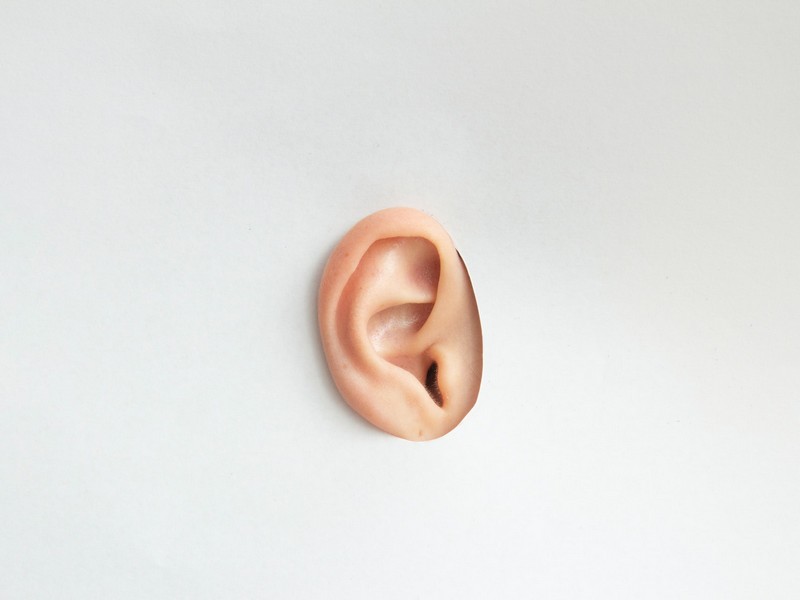
11. 귀가 얇다 (Kwi-ga yalb-da)
There are some words that I like just because they sound more poetic in a sense than the words we say in English. Did you ever have a friend growing up who would believe anything you’d tell them? They were just super gullible? Actually, I was that friend, but that’s neither here nor there. Anyway, in Korean, the phrase for gullible is actually to say that you have “thin ears”. How apt, right?

12. 손이 크다 (Son-i keu-da)
Much like the one before it, this phrase refers to a body part and means that you have big hands. No, they’re not really commenting on the size of your hands and they’re not insinuating anything at all. What they’re really saying is that you’re generous. Get it? Big hands!
Interested in Learning Korean?
- Check out the best Korean classes online to find a course that is good for you.
- Look into the best books to learn Korean from textbooks to slang and verb conjugation.
Check out some of these other posts on learning Korean in Korea.
- Learning Korean With Noisy Salesmen: Is that guy trying to buy my boogers? You’ll see.
- Conversations With Koreans: When Maybe Doesn’t Mean Maybe Anymore
- Conversations With Koreans: Where are you from?
- Conversations With Koreans: Have You Eaten?
Did you like this post? Pin It!
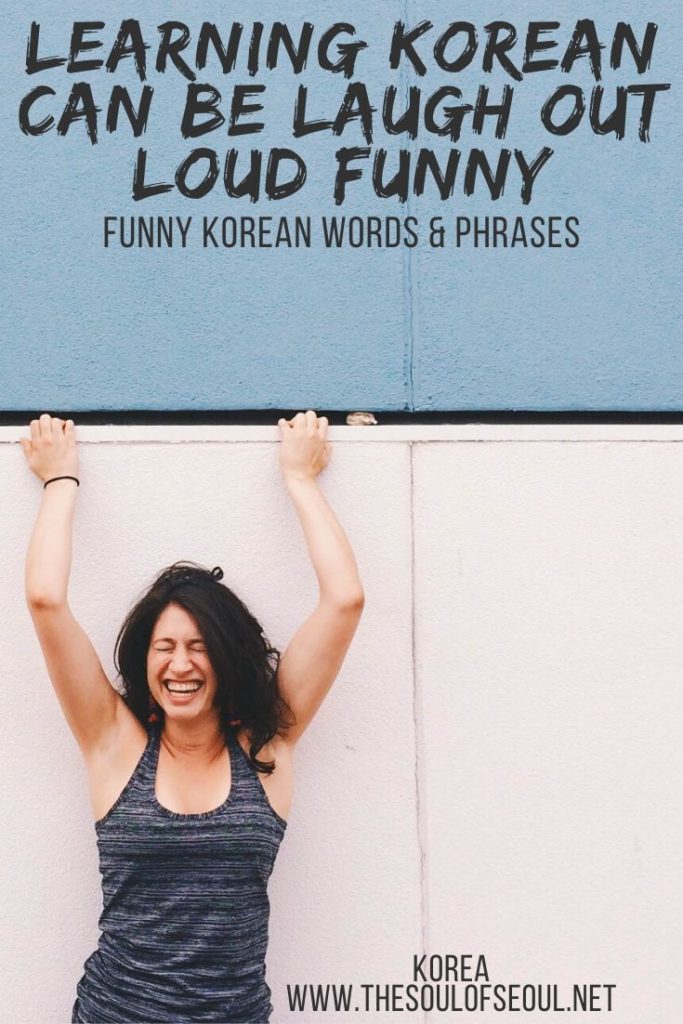

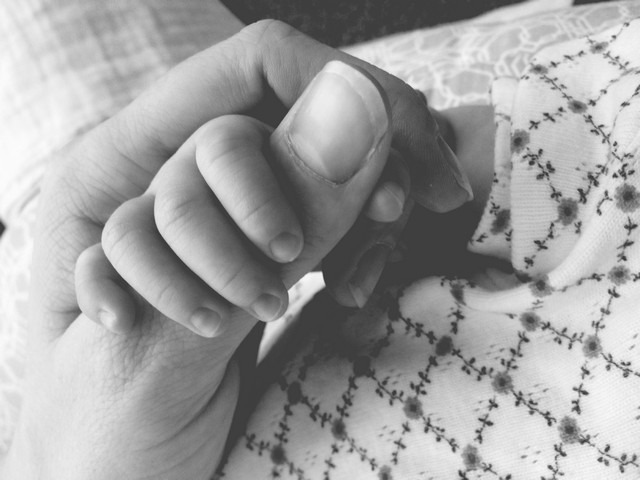

3 Comments
Greg
These are so funny! They’re also interesting for someone like me who has a smattering of Korean vocabulary. More, more!
Bree
These are hilarious, especially the last one! More please!!
Hallie
I was thinking I might have to do a couple more of these posts Bree. Now just because you said so, I definitely will. ^^